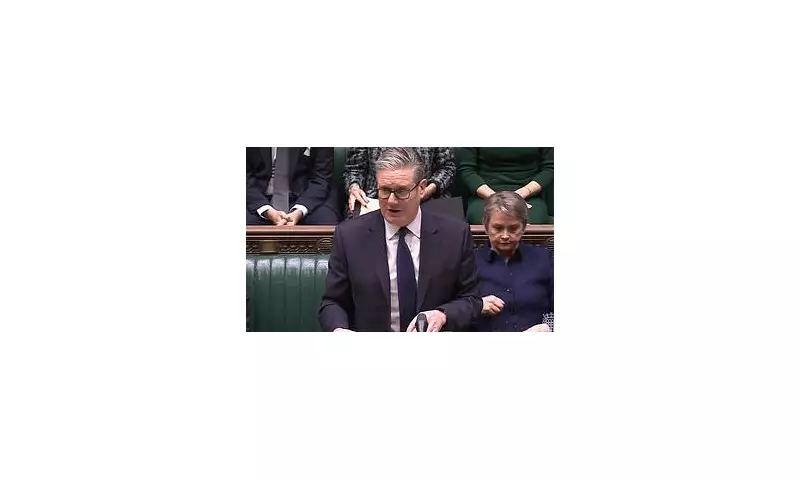
Prime Minister Keir Starmer has declined to rule out the possibility of readmitting Vladimir Putin's Russia to the G7 grouping if it brings a conclusive end to the brutal war in Ukraine. However, he simultaneously issued a warning that significant portions of former US President Donald Trump's proposed peace plan are 'unacceptable'.
A Cautious Stance on Russia's Future
Addressing MPs in the House of Commons, the Prime Minister underscored the immense challenges ahead, stating there is 'a tough road ahead' to end the war started by Russia. He reaffirmed the UK's unwavering commitment, declaring the nation is 'more committed than ever to this cause'.
When pressed by Tory leader Kemi Badenoch to explicitly reject the idea of Russia rejoining the elite group, Sir Keir did not comply. Instead, he emphasised that the immediate priority is securing a ceasefire, noting that 'anything along those lines is a long way off'. He firmly placed responsibility on the Kremlin, stating, 'We have to remember that Putin is the aggressor here, he is the one who started this war.'
Russia was a member of the group when it was known as the G8, participating from 1997 until its expulsion in 2014 following the annexation of Crimea.
Scrutinising the Trump Peace Proposal
The question of Russia's potential reintegration was directly raised by a draft 28-point peace plan circulated by Donald Trump. The plan suggested allowing Moscow to apply for G7 re-entry as part of its broader reintegration into the global economy.
Sir Keir provided his assessment of the US proposal to MPs, revealing that the initial draft 'included points that were not acceptable, but also some very important elements that will be essential for a just and lasting peace'. He outlined the fundamental principles that guide the UK's position, asserting that Ukraine's sovereignty must be maintained and that the nation must be able to defend itself in the future.
He was unequivocal in stating that all matters concerning Ukraine's future 'must be determined by Ukraine', and that their voice must be at the heart of any peace process. Furthermore, he added that elements relating to Europe and NATO would require the consent of their respective members.
International Alignment and Military Preparedness
The Prime Minister's position stands in contrast to that of EU foreign affairs chief Kaja Kallas, who, just hours earlier, had firmly rejected the notion of Russia rejoining the G7. Appearing on BBC Radio Four's Today Programme, she stated, 'We can't go back to business as usual... how could you imagine that?'
Meanwhile, Downing Street confirmed that Sir Keir and Ukrainian President Volodymyr Zelensky discussed ongoing work by a 'coalition of the willing' to prepare for the potential deployment of a multinational force to Ukraine following a ceasefire. The Prime Minister’s official spokesman confirmed that the UK remains willing to put boots on the ground to protect Kyiv if a cessation of hostilities is achieved.
In his concluding remarks to MPs, Starmer summarised the situation, acknowledging the difficult journey ahead but reinforcing the UK's resolve: 'So, there's still a long way to go and a tough road ahead, but we're more committed than ever to this cause and to keeping pushing forward on this process.'





